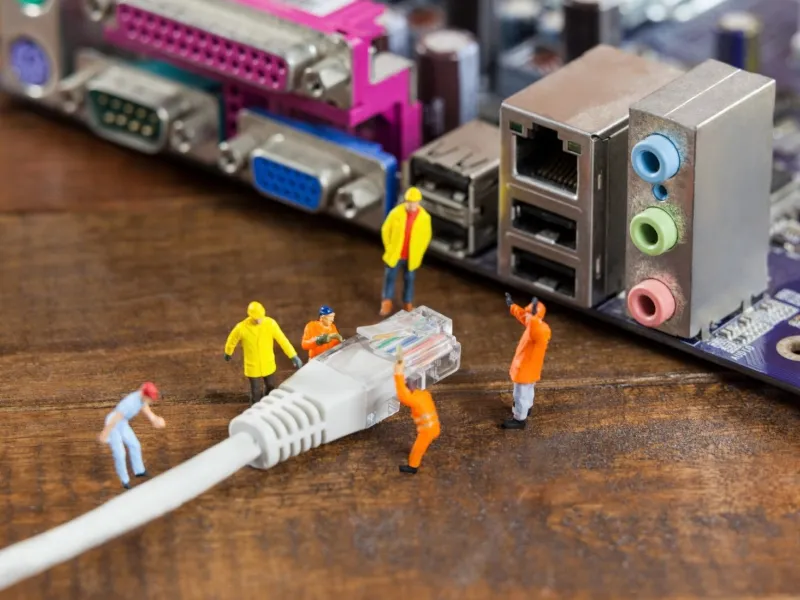- Internet infrastructure encompasses physical and virtual components enabling internet connectivity, including hardware like routers and servers, networks, protocols, and data centres.
- Maintenance of internet infrastructure involves collaboration among entities like ISPs, internet backbone providers, ICANN, RIRs, network equipment manufacturers, and Internet Exchange Points (IXPs).
- Effective management and collaboration among stakeholders, including governments and regulatory bodies, are vital for ensuring the reliability, efficiency, and accessibility of the global internet infrastructure.
Maintaining the internet infrastructure is crucial for ensuring global connectivity, efficient data exchange, and the seamless functioning of digital services worldwide. It supports economic growth, innovation, communication, and access to information, making it vital for modern society’s functioning and development.
Also read: What are the main components of the NIST cybersecurity framework?
What is internet infrastructure?
Internet infrastructure refers to the underlying physical and virtual components that enable the operation and connectivity of the internet. It encompasses a wide range of hardware, software, networks, protocols, and data centres that work together to support the flow of data and information across the internet. This infrastructure includes internet service providers (ISPs), fibre optic cables, routers, switches, servers, domain name systems (DNS), cloud computing platforms, and various other technologies that facilitate the functioning and accessibility of the internet. Internet infrastructure plays a crucial role in ensuring reliable and efficient internet connectivity for individuals, businesses, and organisations around the world.
Also read: What is internet infrastructure?
Who maintains the internet’s infrastructure?
Also read: How does a client server infrastructure work?
The internet infrastructure is maintained by various organisations and entities working together. These include:
Internet Service Providers (ISPs)
ISPs are companies that provide access to the internet for individuals, businesses, and organisations. They manage the connections and networks that allow users to connect to the internet. ISPs may offer various types of connections, such as broadband, fibre optic, or wireless, and they play a crucial role in delivering internet services to end-users.
Internet backbone providers
These are large network operators that manage the high-speed connections, often referred to as the internet backbone, that interconnect ISPs and other networks worldwide. These backbone providers maintain the infrastructure that enables global connectivity and ensures that data can flow between different networks across long distances.
Internet Corporation for Assigned Names and Numbers (ICANN)
ICANN is a non-profit organisation responsible for managing and coordinating various aspects of the internet’s infrastructure. One of its key responsibilities is overseeing the Domain Name System (DNS), which translates human-readable domain names into numerical IP addresses. ICANN also manages the allocation of unique identifiers, such as IP addresses and top-level domains, and helps develop internet policies and protocols.
Regional Internet Registries (RIRs)
RIRs are organisations responsible for the allocation and management of IP addresses within specific regions of the world. There are five RIRs, each serving a particular geographic area. They work closely with ISPs and network operators to ensure that IP addresses are assigned appropriately and efficiently. RIRs also collaborate globally to manage the distribution of IP address blocks and promote the efficient use of address space.
Network equipment manufacturers
Companies that manufacture networking equipment, such as routers, switches, and other networking devices, are essential for maintaining the internet infrastructure. These manufacturers design and produce the hardware and software that enable the routing and switching of data packets across the internet. They play a significant role in continually improving the performance, reliability, and security of the internet’s physical infrastructure.
Internet Exchange Points (IXPs)
IXPs are physical locations where ISPs, content providers, and other networks interconnect and exchange internet traffic. IXPs act as meeting points, enabling different networks to exchange data directly, thus improving network efficiency and reducing the reliance on longer routes. These points help ensure cost-efficient and reliable data transfer within and between different networks.
It is important to note that the internet’s infrastructure is a complex and decentralised system involving numerous stakeholders, including governments, regulatory bodies, standards organisations, and more. Collaboration among all these entities is essential to maintain and enhance the global internet infrastructure.

